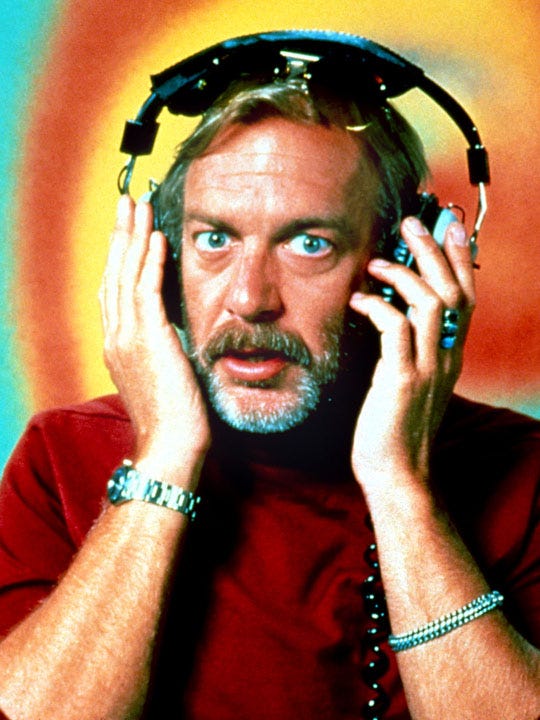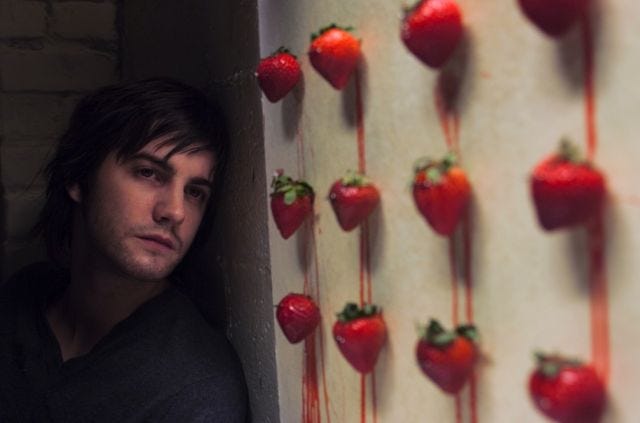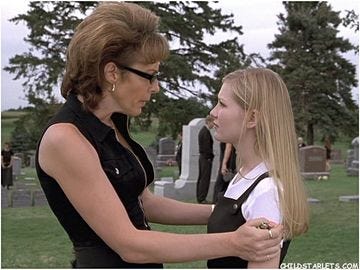So What, Who Cares (vol 1, issue 49) How podcasting turned into the next big thing
Hello and happy Thursday night/Friday morning. I missed you all and have a dozen new stories I can't wait to cover in So What, Who Cares? The Sierras were gorgeous and Lake Tahoe was terrifying, partially because I'm going to swim it next summer but mostly because the waterline is a sobering testament to how very parched California is. (If this state of affairs keeps up, I may not be swimming Tahoe so much as puddle-jumping through it.)
*

We are in a new golden age of radio, if by "radio," you mean "podcasts." Credit the rise of the mobile device for the resurgence in audio content: thanks to smartphones, more people have Internet connectivity more often, and they're downloading and listening to programs like mad. Actually, that may be giving the smartphone too much credit: the jurassic technologies of the automobile and the DVR are helping boost podcasts -- the former by providing the time for people to listen (viva la commute!) and the latter by creating a generation of U.S. consumers that regards media as an on-demand good, not one you schedule your life around.
(Disclosure: The DVR connection is my own deduction, based purely on consumers' shifting attitude toward in media consumption over the last decade.)
So what? There is money in them that earbuds: According to Public Media Market's David Raphael, more advertisers are interested in using podcasts to “brand build” by sponsoring content, and that's opened up a whole new category in advertising. Also, the ad rates are much higher ($25-40 CPM, or the cost of reaching a thousand audience members) compared to YouTube ($17 CPM, on average). And since podcast audiences are considered a much more engaged audience than a social media audience (45 minutes to listen to a podcast compared to 5 minutes cruising a Facenook page), marketers are beginning to get in on the action: 33% of digital marketers plan to begin producing their own brand-specific podcasts.
Who cares? This podcast surge shows that media can pay attention and learn how to reach audiences. I know! Who would have thought? But this is why you don't count out radio as dead and gone: NPR pegged the audience shift: a while back, moving its web content to a mobile-first strategy and launching a profusion of apps, a podcast directory which logs about 25 million downloads a month, and something National Public Media's Bryan Moffat calls the Pandora of NPR with an audio stream customized to listener preferences. (More on that here, with the repetition of the Pandora analogy from NPR's Kinsey Wilson.)
*
The state of California has been fumigating people for over a decade, all at the request of Dow AgriSciences and over the objections of its own scientists. If that sounds a little stark, well ... it should: in 2002, Paul Helliker, director of the California Department of Pesticide Regulation, broadened the permitted use of pesticide 1,3-Dichloropropene (which is a possible-to-probable carcinogen) based on a plan submitted by Dow AgriScience. The chemical is now the third most heavily used pesticide in California, and is a cornerstone of the $2.6 billion strawberry industry, as current industrial production methods require pumping strawberry fields full of fumigants to kill off all soil life and reduce the chance of crop-killing infections.

So what? Fumigants don't leave residue on fruit -- so don't freak if you've eaten an unwashed strawberry recently. But they do turn into gases that become part of the air people breathe, and fumigants have been linked to cancer, developmental problems and the hole in the ozone layer. So: the strawberries we eat now are the result of farming practices that could have significant environmental and health impacts.
Who cares? If you are a citizen in any one of the 100 communities most likely to be affected by commercial strawberry-farming practices, you probably do. Strawberry farmers care: the crop is lucrative now but switching to a different type of pesticide could hike strawberry prices by $1 or $2 to a $12 flat during peak season. And with that kind of price hike, you can be sure consumers have a stake in how their strawberries are grown. It's just a question of how they want to pay.
Bonus reading: For the first word in pollutant-based science fiction, go to Neal Stephenson's 1988 lark, Zodiac. It's a fast, fun read and a great primer on how easy it is to completely wreck a habitat in no time.
Also, Modern Farmer is on the "alternative methods to grow strawberries" beat, with a profile of William Layton's tubes-of-compost method and Sten Peterson's fish-carcasses-and-seaweed techniques in Iceland. They also ran a first-person feature on what life is like for the people who pick the strawberries.
*

Your pop culture note of the day: The movie Drop Dead Gorgeous was on heavy rotation in my house way, way back in the day, mostly because I loved Allison Janney's Loretta so dang much, but also because I am a complete The State groupie (vol 1, issue 21), and the movie was directed by Michael Patrick Jann. (The experience so scarred him, he never made another feature.) But I remembered how funny and sweet Amy Adams was, and watched her career with interest. When people began carrying on about her in Junebug and then Enchanted, I was like, "This really isn't a surprise."
Amy Adams ' turn in Drop Dead Gorgeous leads off Flavorwire's roundup of famous actors' great pre-fame work. It's a fun little trip down memory lane and/or a chance to catch up on some folks' early work. Lawrence Fishburn was only fourteen when he made Apocalypse Now. Fourteen! That becomes more harrowing if you ever watch Hearts of Darkness: A Filmmaker's Apocalypse, because that was one chaotic production.
*
Did you miss an issue of So What, Who Cares? The archive is here. Also, there is now a topic index that tells you what was in each issue. If you're like, "I remember there was an issue with a Philip Seymour Hoffbrau joke, but when ...?" -- well, now you can find it. (It was September 24, 2014, btw.)
As always, I welcome your feedback and suggestions via email or Twitter. Always let me know what you think about So What, Who Cares? If you really like it, tell a friend to subscribe.

